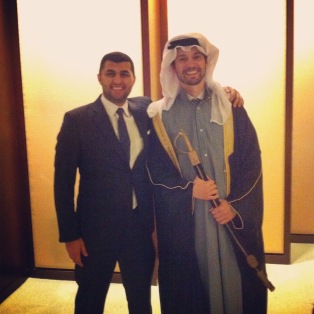Building Global Competence Without Traveling

Building Global Competance
Life Nomading Introduction:
You don’t need thousands of dollars to travel the world to become globally competent. A travel blog and tour company telling you that you don’t need to travel the world seems counterintuitive. However, at Life Nomading our passion for travel is driven by our desire to understand different cultures, bridge gaps between people of different backgrounds, and forge into the darkness that is uncertainty.
Story by Oliver Crocco:
Global competence is often times a pleasant side effect of traveling the world or living abroad. It gives you a rare perspective of looking from the outside in at your own country and culture. Having that perspective to view things in your own country from a different angle will make you more relatable and help drive successful relationships with diverse people in your life and career.
What about people who don’t have the privilege to travel internationally or work abroad?
Bill McDermott, CEO of SAP talks a lot about the importance of respect, and authors of Being Global, Unruh and Gabera write that to become a global leader requires a “do-it-yourself mind-set.” So here are four ways I’m learning to help foster respect for other cultures by intentionally seeking out global experiences at home.
Connect with refugees in your area
After college in Spokane, WA, my housemates and I volunteered with a refugee resettlement organization and housed refugees from different countries for 1-3 months at a time. Over the course of the year, we had a family from Bhutan, several individuals from Eritrea, and a man from Iran. We would pick them up from the airport, help them get settled, and teach them how to get around town. Most of them could not speak English or knew basic things about America – like that we flush our toilet paper. Still, they loved sharing their culture with us and were grateful to be in the U.S. One of the members of our house even opened a thrift store business in Spokane (Global Neighborhood Thrift) and employs dozens of immigrants from all over the world. There are powerful ways to volunteer with local refugee organizations or big INGOs like the International Rescue Committee (IRC) and it can be extremely rewarding.
Find a popular second language in your area and begin learning some words and phrases
For many of us in America this might be Spanish but it could also be Amharic (Ethiopia), Mandarin, French, etc. Then, when you meet someone who speaks that language, do your best to speak a few words of their native language with them. It is a humbling experience to fumble through and perhaps botch a foreign language – even just “hello” and “thank you.” I recently learned how to say “thank you very much” in Amharic (betam ameseginalehughn) considering the amount of Ethiopians in D.C. There is a community-building energy that comes with doing so, and I believe it demonstrates a level of respect that we need more of in our globalizing world.
Attend cultural events
I live in Washington, D.C. so there is absolutely no shortage of cultural events to attend. From the Thai Temple in Maryland (Wat Thai D.C.) to the Embassy nights and ethnic restaurants, there are many ways to engage with other cultures. This is obviously not true everywhere in the U.S. but there are more and more ways to interact with others cross-culturally popping up. In 2014, I went to the Saudi Arabian Embassy with a Saudi classmate. He has since become one of my best friends and we have had countless deep (and sometimes tough) discussions about culture, religion, and global leadership.
Go out to lunch, coffee, or even ask to be mentored by someone in your organization who has a different cultural upbringing than you.
In Caligiuri and Tarique’s 2012 article “Dynamic cross-cultural competencies and global leadership effectiveness,” the authors discuss having a mentor from another country as one of the indicators for cross-cultural competency. I am sometimes wary of mentoring relationships because of the power distance inherent in them but I like the idea of seeking out relationships with people from a variety of cultural backgrounds in your organization. My mentor, colleague, and friend, Dr. Maria Cseh, is originally from Hungry and I’ve learned a lot about Eastern European culture (and much more!) from our many discussions.
Summary
Even if we work on global teams, have multiple international assignments, and speak other languages it does not mean that we will become globally competent. We must always push ourselves to be curious about our global surroundings wherever we are in America or abroad. It requires a humble willingness to learn and see things from other perspectives.
The reward? A certain richness and color to life – and a global sense of belonging.

